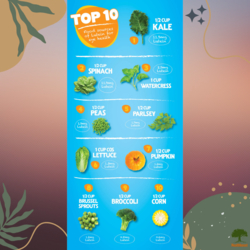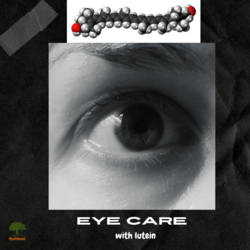Lutein (5th January 2022):
 Lutein belongs to the carotenoid family of antioxidants. Antioxidants inhibit the action of reactive chemicals known as free radicals, which can harm our organs and, as a result, our health, if they aren’t managed. Lutein can be found in a variety of fruits and vegetables, particularly those that are dark green, orange, or yellow in hue. Lutein is a type of xanthophyll that is often used to treat or prevent vision problems. It lowers your chances of getting macular degeneration and cataracts. It could also be beneficial to your skin and cardiovascular system. Let us take a look at the potential health benefits of lutein.
Lutein belongs to the carotenoid family of antioxidants. Antioxidants inhibit the action of reactive chemicals known as free radicals, which can harm our organs and, as a result, our health, if they aren’t managed. Lutein can be found in a variety of fruits and vegetables, particularly those that are dark green, orange, or yellow in hue. Lutein is a type of xanthophyll that is often used to treat or prevent vision problems. It lowers your chances of getting macular degeneration and cataracts. It could also be beneficial to your skin and cardiovascular system. Let us take a look at the potential health benefits of lutein.
Heath Benefits of Lutein
Prevents Age-Related Macular Degeneration– Lutein supplements may help individuals with age-related macular degeneration, a significant cause of blindness, and improve their vision. A study that followed over 100,000 adults from 1984 to 2010 discovered that consuming more bioavailable lutein and zeaxanthin was linked to a decreased long-term risk of advanced age-related macular degeneration.
Improves visual function– Researchers discovered that patients who took lutein supplements for 12 weeks improved their visual function in a 2009 trial of 37 healthy people. The findings of the study also imply that lutein supplements could aid in the treatment of visual impairments caused by prolonged exposure to light from computer screens.
Enhances eye health– Many studies showing lutein’s favourable benefits on eye health were found in a 2018 review of research. Not only should a diet rich in lutein-rich fruits and vegetables be encouraged, but supplementation may also be advantageous, especially in groups at high risk of certain illnesses, such as the elderly, according to the researchers.
Acts as a skin protectant– The positive effects of lutein on the skin have just recently been established. Its antioxidant properties protect your skin from the sun’s harmful ultraviolet rays.
Lutein-containing food sources
Despite its yellowish hue, lutein is found in the highest concentrations in green, leafy foods like kale, spinach, and collard greens (their green chlorophyll masks the yellow pigments). Lutein can also be found in zucchini, squash, broccoli, maize, peas, and brussels sprouts. Carotenoids like lutein are fat-soluble, which means they absorb better when consumed with fats like olive oil or butter. Despite having less lutein per serving than leafy greens and other vegetables, eggs may provide lutein in a form that is more readily absorbed by human systems, thanks to the fat included in the yolks. Lutein is also available as a nutritional supplement in capsule form.
greens (their green chlorophyll masks the yellow pigments). Lutein can also be found in zucchini, squash, broccoli, maize, peas, and brussels sprouts. Carotenoids like lutein are fat-soluble, which means they absorb better when consumed with fats like olive oil or butter. Despite having less lutein per serving than leafy greens and other vegetables, eggs may provide lutein in a form that is more readily absorbed by human systems, thanks to the fat included in the yolks. Lutein is also available as a nutritional supplement in capsule form.
Dosage
There is no standard daily lutein dosage recommendation. It appears that consuming 6.9-11.7 mg of lutein per day is safe. Lutein supplements have been used safely in studies at levels of up to 15 mg per day for up to two years. Furthermore, health experts say that getting up to 20 mg of lutein from food or supplements appears to be safe.
Potential side effects
When consumed at suitable levels, lutein and lutein supplements are largely safe. Lutein supplements should be avoided by patients with skin cancer or cystic fibrosis, for example. Before using any form of dietary supplement on a regular basis, it’s crucial to talk to your doctor.
Final thoughts
Lutein is a potent antioxidant carotenoid that can be found in large concentrations in dark-green vegetables and is also available as a supplement. Lutein supplementation on a daily basis may help to enhance skin tone, protect skin from sun damage, and slow the progression of age-related macular degeneration and cataracts. Dietary intakes of this carotenoid are low in the usual diet, which may be even another reason to eat more fruits and vegetables.
Come into Healthboost to check out supplements that is right for you.
